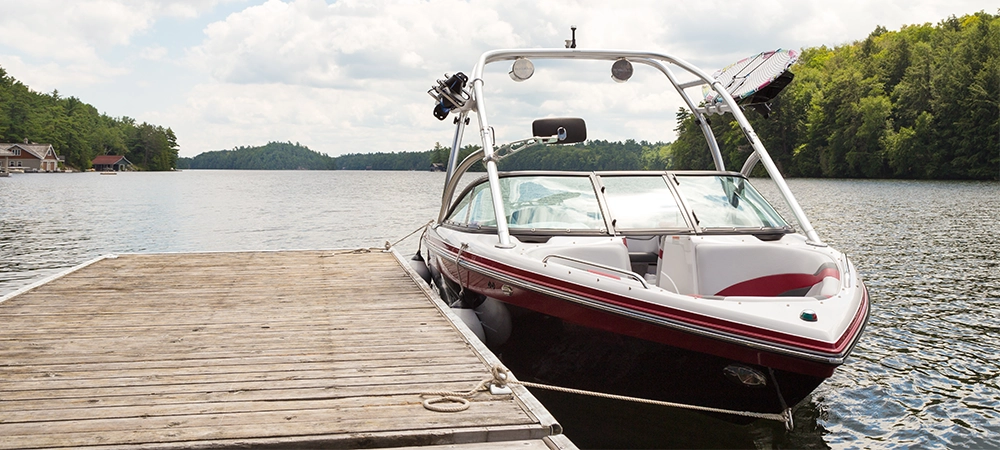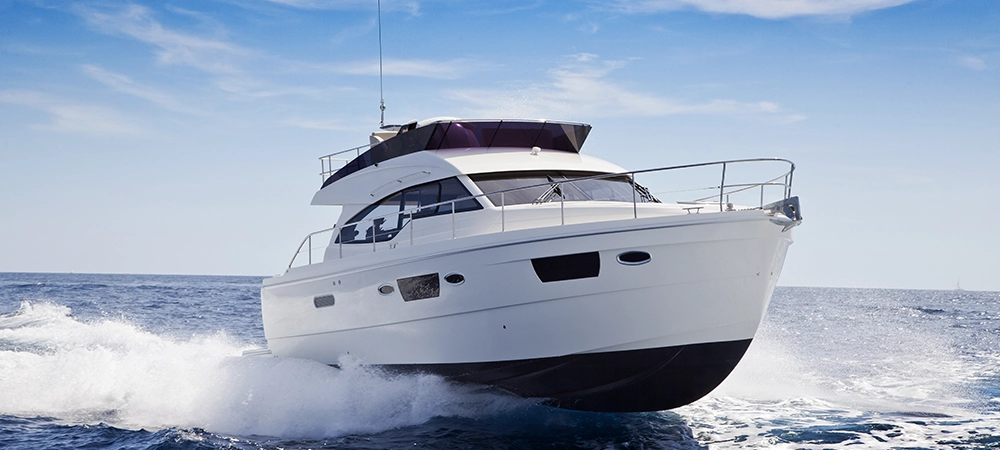If you’ve recently got a boat, or are looking to get one, you may have heard of Ontario boat insurance coverage. It can be important to protect your asset, but do you need to get it, and what should you be looking for?
Thankfully Buckler Insurance is here to answer all your questions. We’ll look at the importance of boat insurance, what you need to consider, and answer some FAQs. Let’s get started!
Do I Need Boat Insurance?
The first question you may be asking is do I actually need boat insurance? It is not a legal requirement in Ontario, so if you don’t want it, you don’t need it.
While generally not a legal requirement, there can be times when it’s needed. For example, finance companies often won’t loan you money for a boat unless it is insured. Also, a marina may require you to have liability insurance.
However, insurance can be important to cover yourself if something bad happens. There isn’t just your own boat to consider but you’ll also need to think about the potential of damaging other boats, infrastructure such as a marina, or physical injury.
Types of Boat Coverage
Before looking into the different policy options, you need to know whether to cover your boat for an Agreed Cash Value or its Actual Cash Value. Let’s have a look at the difference between the two.
Agreed Cash Value – This is where you agree with the insurance company on the value of the boat and then that’s what is paid in the event of a total loss due to the likes of theft or sinking.
The purchase price of the boat usually determines this value and doesn’t account for any age or depreciation. This has the benefit of you knowing exactly how much the boat will be covered and the payout is usually quite high. Due to this, the premiums will also be higher too.
Actual Cash Value – As you may have guessed, Actual Cash Value covers you for the value of the boat right now. Due to depreciation, this means what you’ll get from your payout will gradually decrease as time goes on.
With this type of coverage, you will still be compensated for your loss of asset, but you won’t receive as much as the purchase price. Due to the lower payout given, these policies usually come with the benefit of having a lower premium.
Types of Boat Insurance Policies
As well as the type of coverage, there are also different types of policies that you can choose from. The right one for you will depend on your circumstances, but let’s look at the different options.
Comprehensive Boat Insurance – This type of policy provides coverage for a wide range of risks, including damage to the boat due to accidents, theft, vandalism, fire, and weather-related events. It may also cover liability for bodily injury or property damage caused by the boat. As you can expect, this is usually the most expensive type of policy.
Liability Only Boat Insurance – This type of policy provides coverage for liability only, without covering physical damage to the boat. It typically covers bodily injury or property damage caused by the boat to third parties, such as other boats, docks, or people.
Named Peril Boat Insurance – This type of policy provides coverage only for specific risks or perils that are explicitly listed in the policy, such as fire, theft, or sinking. It may offer less comprehensive coverage compared to a comprehensive boat insurance policy but may be more affordable.
Uninsured/Underinsured Boater Insurance – This type of policy provides coverage for bodily injury or property damage caused by another boater who is either uninsured or underinsured. It can help protect the boat owner from financial losses if they are involved in an accident with an uninsured or underinsured boater.
Depending on the insurer, there can be other types of coverage available. It’s important to take your personal circumstances into account and get the right policy for you. It’s sometimes the best option to pay a slightly higher premium to get the exact policy you need.
What Affects My Boat Insurance Premium?
We’ve seen what types of boat insurance coverage are available, but what factors determine the final cost?
Boat’s Value – This is going to be the most significant factor in the overall cost of your premium. The more expensive your boat, the more coverage you’ll need. If you have an expensive boat but need to save a bit of money, then you can look at insuring it for its Actual Cash Value.
Boat Type – The type of boat, such as a sailboat, powerboat, fishing boat, or personal watercraft, can affect the insurance premium. Different types of boats may have different risks associated with them, and insurance providers may assess premiums based on these risks.
Age/Condition – The age and condition of the boat can impact the insurance premium. Older boats or boats in poor condition may be considered higher risk and may result in higher premiums.
Usage/Location – The usage and location of the boat can affect the insurance premium. Factors such as where the boat is operated, how often it is used, and where it is stored when not in use can impact the risk profile.
Boating Experience and Safety Features – The boating experience and safety features can also affect the insurance premium. Boat owners with more experience and training may be eligible for discounts, while boats with safety features may be considered less risky.
Coverage Limits and Deductibles – The coverage limits and deductibles selected by the boat owner can impact the insurance premium. Higher coverage limits and lower deductibles typically result in higher premiums, while lower coverage limits and higher deductibles may result in lower premiums.
Claims History – The boat owner’s claims history, including any past boat insurance claims, can also impact the insurance premium. A history of prior claims may result in higher premiums as it may be considered indicative of higher risk.
Credit History – In some cases, the boat owner’s credit history may also be considered by insurance providers when determining the premium. A poor credit history may result in higher premiums, while a good credit history may result in lower premiums.
Final Thoughts
When insuring a boat, it’s important to take a wide range of factors into account before deciding on the right policy for you. While not legally required, Ontario boat insurance coverage can give you peace of mind and help protect you from huge bills.
If you want to get your boat covered, then get in touch with us here at Buckler Insurance. We’ll take you through all the steps so you can have peace of mind when you’re out there on the water.







As a new boat owner, I have just realised the importance of protecting my asset from any potential damage or accidents. Even though boat insurance is not legally required in Ontario, I know that having it can give me peace of mind and financial protection. I appreciate Buckler Insurance for providing comprehensive information on boat insurance policies and the factors that can affect the premium. I think that choosing the right type of policy and coverage limit is crucial. Thank you for making it easier for me to understand boat insurance, and I am sure others will find it usefull too.
Dear Philip,
Thank you for taking the time to read and comment on our blog. We are thrilled to hear that you found the information provided by Buckler Insurance to be comprehensive and helpful in understanding the different types of policies and coverage limits available for boat owners.
As you rightly mentioned, boat insurance can give you peace of mind and financial protection in the event of any potential damage or accidents that may occur while using your vessel. While it is not legally required in Ontario, it is highly recommended to protect your valuable asset.
We appreciate your feedback and are delighted that our blog has been of help to you. Our goal is to provide informative and relevant content that can assist boat owners like yourself in making informed decisions about their insurance needs. Please do not hesitate to reach out if you have any further questions or concerns.
Thank you for choosing our blog as a trusted source of information, and we wish you safe and enjoyable voyages on your boat!